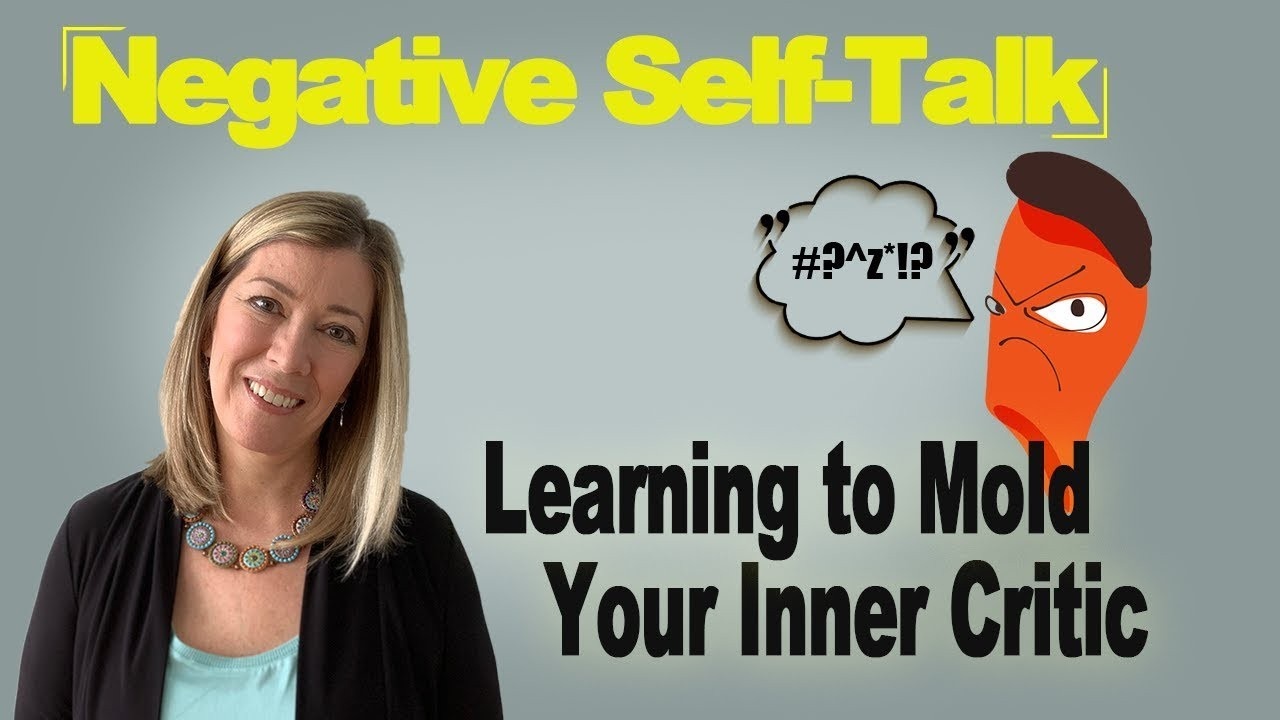
Negative Self-Talk - Mold Your Inner Critic
We all have that little voice in our heads, the inner critic, that constantly whispers negative thoughts, doubts, and criticisms. It can be relentless, berating us for our mistakes, and making us feel inadequate. But have you ever wondered why we have this inner critic? In this blog post, we'll delve into the evolutionary roots of the inner critic, explore different strategies to handle it, and learn how to turn it into a source of self-encouragement and support.
Evolutionary Biologists' Perspective
Evolutionary biologists tell us that the inner critic is hard-wired into our brains. This may seem counterintuitive since this inner voice often feels like our worst enemy. However, in ancient times, our survival depended on being accepted by our tribe. Rejection from the tribe could mean certain death. The inner critic, in its original form, was meant to help us navigate social dynamics and ensure our inclusion in the group. It alerted us to behaviors that might lead to exclusion.
The Inner Critic in Modern Times
Fast forward to today, and our inner critic hasn't quite caught up with the times. Instead of protecting us, it often sabotages our self-esteem and mental well-being. Many individuals with conditions like depression, anxiety, OCD, or addiction experience an overpowering inner critic that constantly shames them and reinforces negative self-beliefs.

Are you struggling with OCD or Pure O? Do obsessive thoughts, rituals, and compulsions take over your life? Has it been hard to find a specialist to help you?
If you want to get your life back from OCD or Pure O,
this course is for you.
Different Approaches to Taming the Inner Critic:
-
Externalizing the Inner Critic: Therapist and writer Jack Kornfield suggests externalizing the inner critic by giving it a name, like "Adolphe." By separating it from ourselves, we can acknowledge its presence and thank it for its input, but also assert that its negative feedback isn't currently helpful or needed.
-
Engaging in Dialogue: Pat Allen, author of "Art as a Way of Knowing," encourages engaging in a conversation with the inner critic. By recognizing that it may have good intentions (such as preventing embarrassment or shame), we can redirect its efforts in a more positive and constructive direction.
-
Seeing the Inner Critic as a Guide: Dr. Rick Hansen proposes a perspective shift. He views the inner critic as a guide, albeit a negative one. Just like teachers or coaches can either encourage or discourage us, we can mold our inner critic into a nurturing and supportive voice.
Molding Your Inner Critic into an Encouraging Ally
Think of your inner critic as a coach. When a coach criticizes and demotivates, progress is limited. However, an encouraging coach can inspire growth and achievement. To turn your inner critic into a positive force, consider these strategies:
-
Practice Self-Compassion: Treat yourself with the same kindness and encouragement you would offer to a child. Nurture yourself unconditionally, even when you make mistakes.
-
Be Mindful of Self-Talk: Remember that your brain is always listening. Replace negative self-talk with positive, self-encouraging affirmations.
-
Open a Dialogue: When your inner critic becomes overly negative, engage in a conversation with it. Explain your need for support and positivity, just as you would with a teacher or coach.
The inner critic is a part of who we are, but it doesn't have to be a constant source of negativity and self-doubt. Understanding its evolutionary origins and employing strategies to mold it into a nurturing and encouraging voice can profoundly impact our self-esteem and well-being. By understanding its purpose, externalizing it, and reshaping it into a positive guide, individuals can improve their self-perception, self-esteem, and overall well-being. Addressing the inner critic often involves recognizing its presence and working to reframe its messages in a more compassionate and realistic way.
Let's Keep in Touch
Subscribe to My Newsletter
We hate SPAM. We will never sell your information, for any reason.







